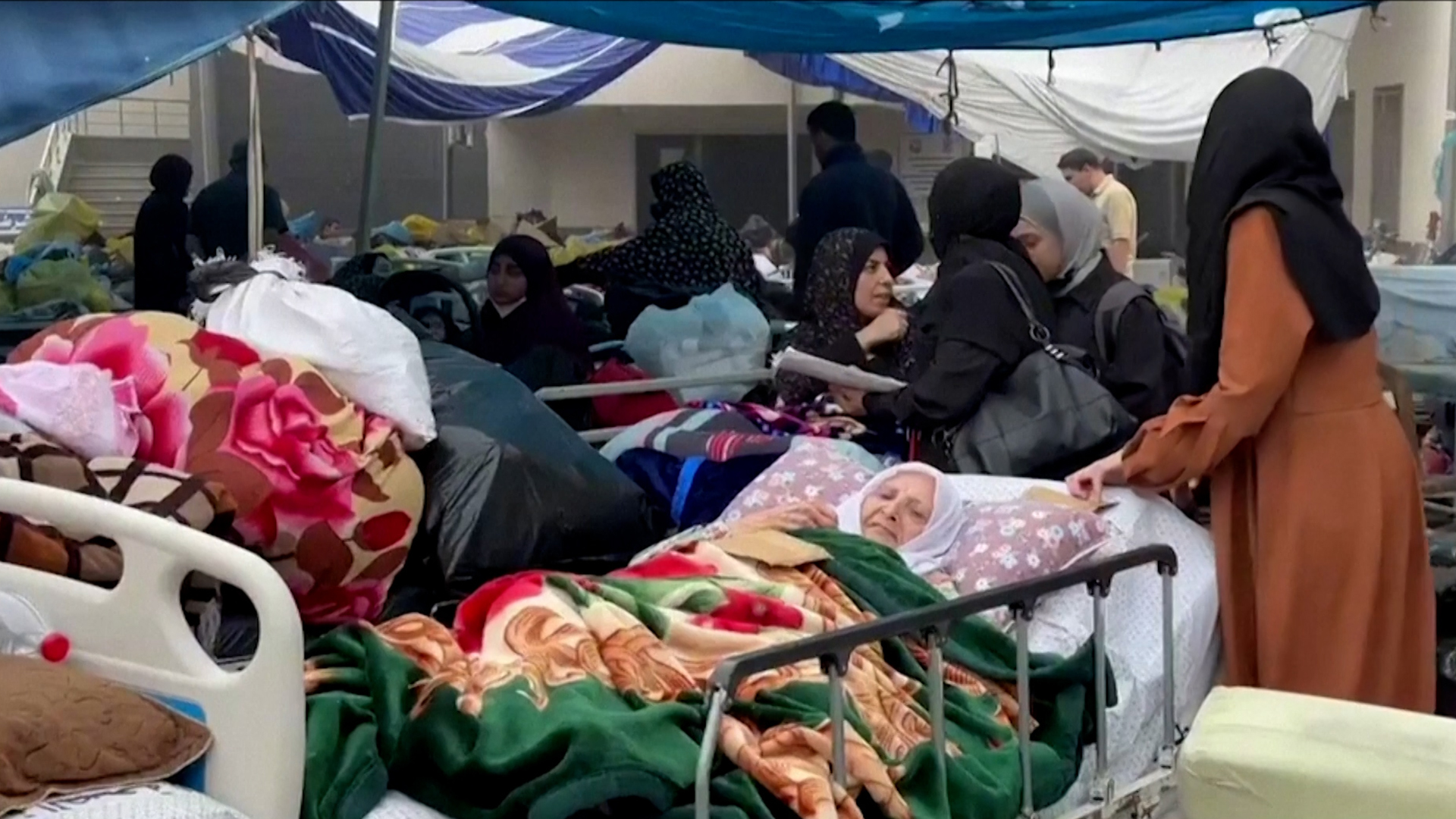Erdogan and Turkey’s elections: What you need to know
Tens of millions of voters cast their ballots. In the initial round on May 14, Erdogan won 49 percent of the votes, compared with 45 percent for Kemal Kilicdaroglu, the leader of the opposition alliance. Since neither candidate passed the 50-percent threshold, that triggered Sunday’s runoff.
Much was at stake. Under Erdogan’s rule, Turkey’s role as a regional and international power broker has grown substantially, even as he has become increasingly intolerant of dissent, and the election results were watched closely across the Middle East and around the world. Here’s what you need to know.
How close was the contest?
Ahead of May 14, Turkey’s opinion polls showed a neck-and-neck race between the two main blocs, with some polls showing Kilicdaroglu with a slim lead.
But skepticism remained about Kilicdaroglu’s ability to pull off an upset. Erdogan is Turkey’s longest-serving leader — surpassing even Mustafa Kemal Ataturk, the founder of the modern Turkish republic. Erdogan, 69, is most at home on the campaign trail and has stepped up the pace of rallies in the election’s closing stages, often making several speeches a day.
He has led Turkey since he became prime minister in 2003, a post he occupied until 2014, when he took office as president. In 2017, he succeeded in expanding the president’s powers in a referendum, which replaced Turkey’s parliamentary system with an executive presidency and abolished the post of prime minister.
The referendum gave Erdogan the authority to issue decrees without parliamentary approval and was seen by his opponents as further entrenching his authoritarian rule.
His government has moved to regulate the press and social media over the years, even seeking to ban Twitter in 2014 following a political scandal. “The assault on critical journalism … accelerated” after a failed coup attempt in 2016, according to Human Rights Watch, and tens of thousands of people are investigated every year for the crime of “insulting” the president. A law that passed last year imposes jail time on anyone found to have spread misinformation that incites public fear and anxiety.
Erdogan, however, commands a large and loyal base of supporters, which he tried to bolster this year through a rapid rollout of economic appeasements — including tax relief, cheap mortgage loans, energy subsidies and pledges to not raise road and bridge tolls.
After two earthquakes in February that devastated cities across the southern part of the country, killing more than 50,000 in Turkey and neighboring Syria, the government came under fire from quake victims for the slow deployment of first responders and for failing to enforce building codes. Kilicdaroglu said the collapse of so many buildings was “the result of systematic profiteering politics” and held Erdogan personally responsible for not preparing the country for a disaster that seismologists had long warned was possible. But in the May 14 round, Erdogan won most of the 11 quake-hit provinces, where voter turnout was overall slightly lower.
Erdogan has been equally biting about his opponents: In early May, he accused the opposition party of aligning with terrorists. “They want to hand over the country to terrorist groups controlled by imperialists,” he said, referring to the pro-Kurdish Peoples’ Democratic Party, whom Erdogan accuses of links to a Kurdish militant group.
Erdogan has also attacked the LGBTQ community, whose cause is supported by the opposition. “We are against the LGBT,” he said at a rally, seeking to appeal to his base of religiously conservative voters. Istanbul’s pride parades, which once attracted thousands, have been banned since 2015.
Who did Erdogan run against?
Facing Erdogan was an alliance of six opposition parties, which named Kilicdaroglu as its candidate for president.
The 74-year-old former civil servant became the leader of the main opposition Republican People’s Party, or CHP, in 2010. Though he has previously failed to lead his party to victory against Erdogan’s AKP in parliamentary elections, he effectively harnessed social media during this campaign to reintroduce himself to voters.
Heading into the runoff, however, it appeared difficult for the opposition to prevail with an emboldened Erdogan at the helm of the state’s institutions and the country’s media largely behind the incumbent.
Kilicdaroglu’s bloc banked on the support of opposition voters who delivered victories in 2019 in big-city mayoral elections — most notably in Istanbul, where charismatic CHP member Ekrem Imamoglu defeated Erdogan’s chosen candidate.
Imamoglu, a rising political star, was named by Kilicdaroglu as his candidate for vice president alongside Ankara Mayor Mansur Yavas of the CHP. Imamoglu has been sentenced to more than two years in prison for insulting public officials in a trial widely viewed as politically motivated. He faces a ban from public office if the ruling is upheld.
Though Turkey’s famously fractious opposition parties have managed to paper over their differences in the run-up to this election, a win by Kilicdaroglu would have forced him to contend with competing interests inside his umbrella alliance, which includes nationalists, Islamists, secularists and liberals.
Kilicdaroglu has focused on issues that have eroded Erdogan’s popularity, promising to tackle the cost-of-living crisis, protect gender equality and prioritize the rule of law by reforming the judiciary, which critics say has been weaponized by the government to target its opponents.
Kilicdaroglu also promised to return to orthodox economic policies and restore the parliamentary system of governance, reinstating the role of prime minister and reducing the powers of the president.
What does the election mean for Europe and NATO?
Perhaps no European nation was watching Turkey’s election more closely than Sweden, whose bid to become a NATO member has been held up by Erdogan.
Turkey voted in March to allow Finland to join the military alliance — doubling NATO’s land border with Russia — but Erdogan continues to hold up Sweden’s bid for membership, citing Stockholm’s refusal to extradite “terrorists” affiliated with the militant Kurdistan Workers’ Party, or PKK.
Kilicdaroglu’s chief foreign policy adviser, Unal Cevikoz, told Politico in March that he would not stand in the way of Sweden’s NATO ambitions: “If you carry your bilateral problems into a multilateral organization, such as NATO, then you are creating a kind of polarization with all the other NATO members with your country,” he said.
Kilicdaroglu had promised to revitalize Turkey’s strained relations with the European Union, raising the prospect of unfreezing long-stalled accession talks and emphasizing the importance of deepening economic ties and cooperating on migration and refugees.
Turkey’s extensive border with Syria made it a natural point of escape for those fleeing bombardment and starvation imposed by Syrian President Bashar al-Assad after his brutal crackdown on popular revolts in 2011, and the country now hosts at least 4 million Syrian refugees and asylum seekers.
Though Syrians were once welcomed in Turkey, public opinion has shifted against them, and they have become a popular target for ultranationalist politicians seeking to deflect blame for the country’s economic downturn. Erdogan has admonished Turks for attacking refugees but has also bowed to public pressure by promising to resettle a million Syrians in opposition-held parts of their country.
And even as Kilicdaroglu has said he will try to repair Turkey’s record on human rights, he has sounded many of the same notes as Erdogan on refugee policy, saying the E.U. should provide funds for Turkish contractors to rebuild parts of Syria for resettlement. If the E.U. does not provide these funds, he said: “I’m sorry, I’ll open the doors. [Refugees] can go wherever they want.”
What does the election mean for Russia’s war in Ukraine?
Following Russia’s invasion of Ukraine last year, Turkey immediately put itself forth as a mediator, hosting an initial round of diplomatic talks between Moscow and Kyiv, efforts that died down as the conflict intensified. Last summer, Turkey aided in and hosted the signing of a U.N.-brokered agreement to restart shipments of grain that Russia had blockaded.
Erdogan is known for his balancing acts: He resisted joining Western sanctions against Russia but allowed the sale of drones to Ukraine, which have been employed against Russian targets in the war. He continues to import Russian oil and even suggested in March that Russian President Vladimir Putin might visit Turkey’s first nuclear reactor in April — Putin joined via video link instead.
Kilicdaroglu had pledged that, if elected president, he would maintain a “sound and credible continuation of Turkey-Russia relations” — continuing to act as a mediator and working to extend the grain deal but prioritizing Ankara’s status as a NATO member.
Check out our Latest News and Follow us at Facebook
Original Source






